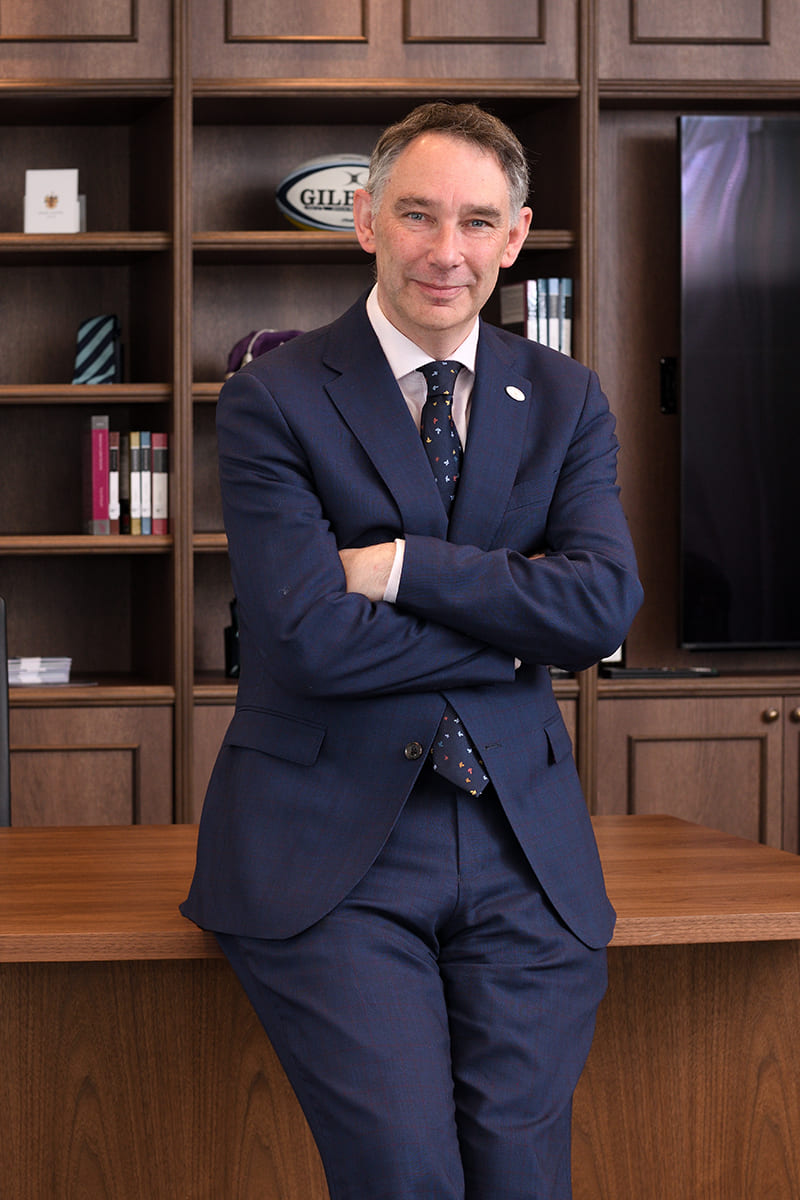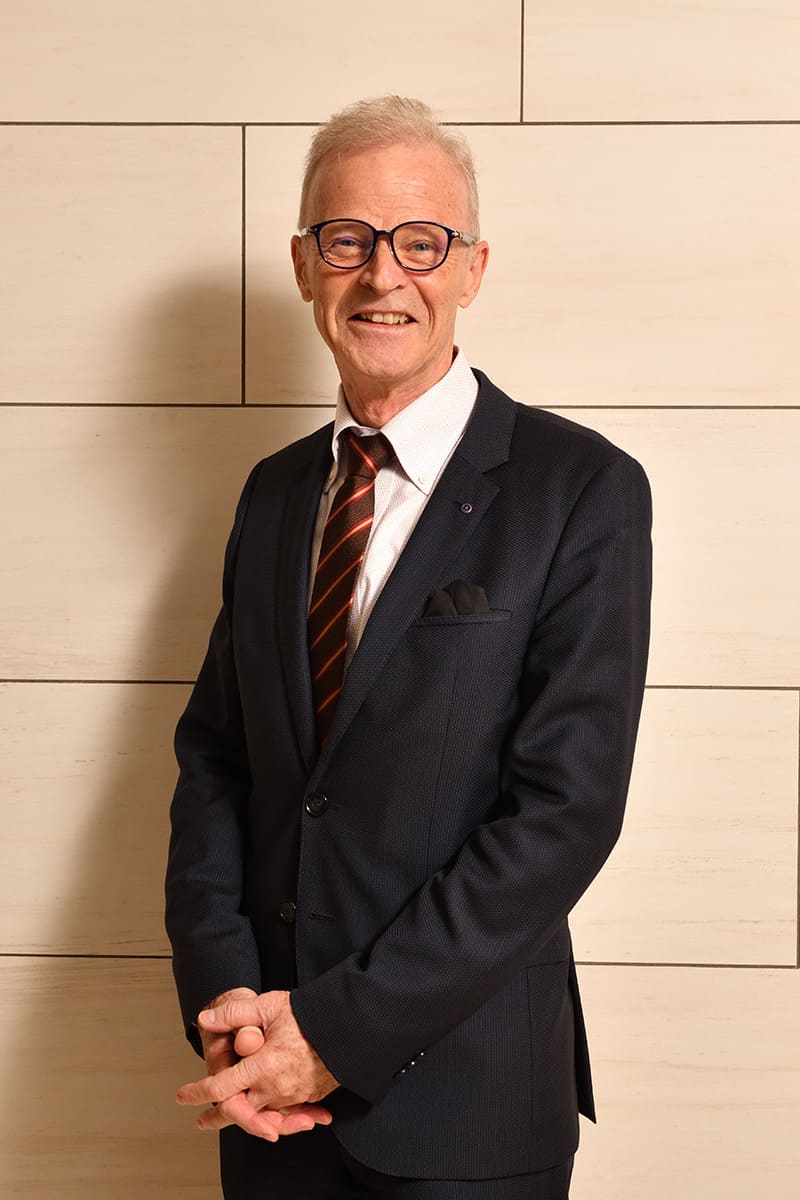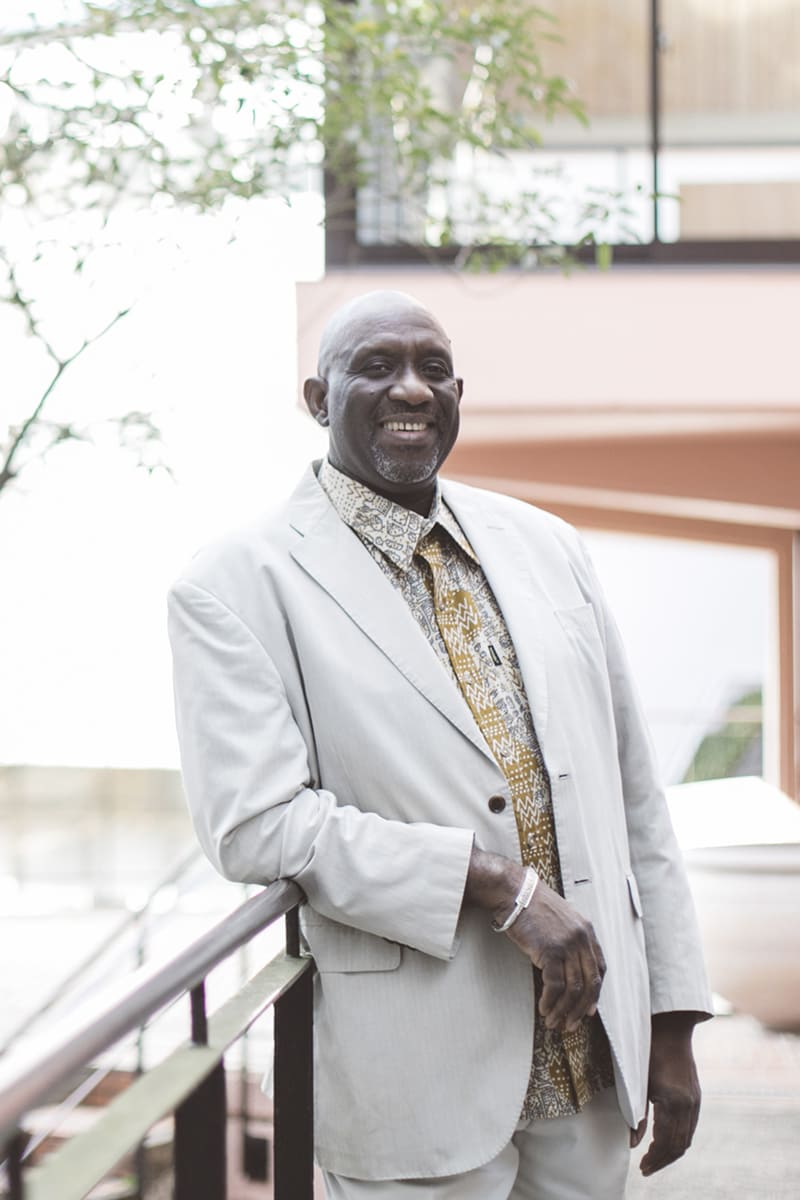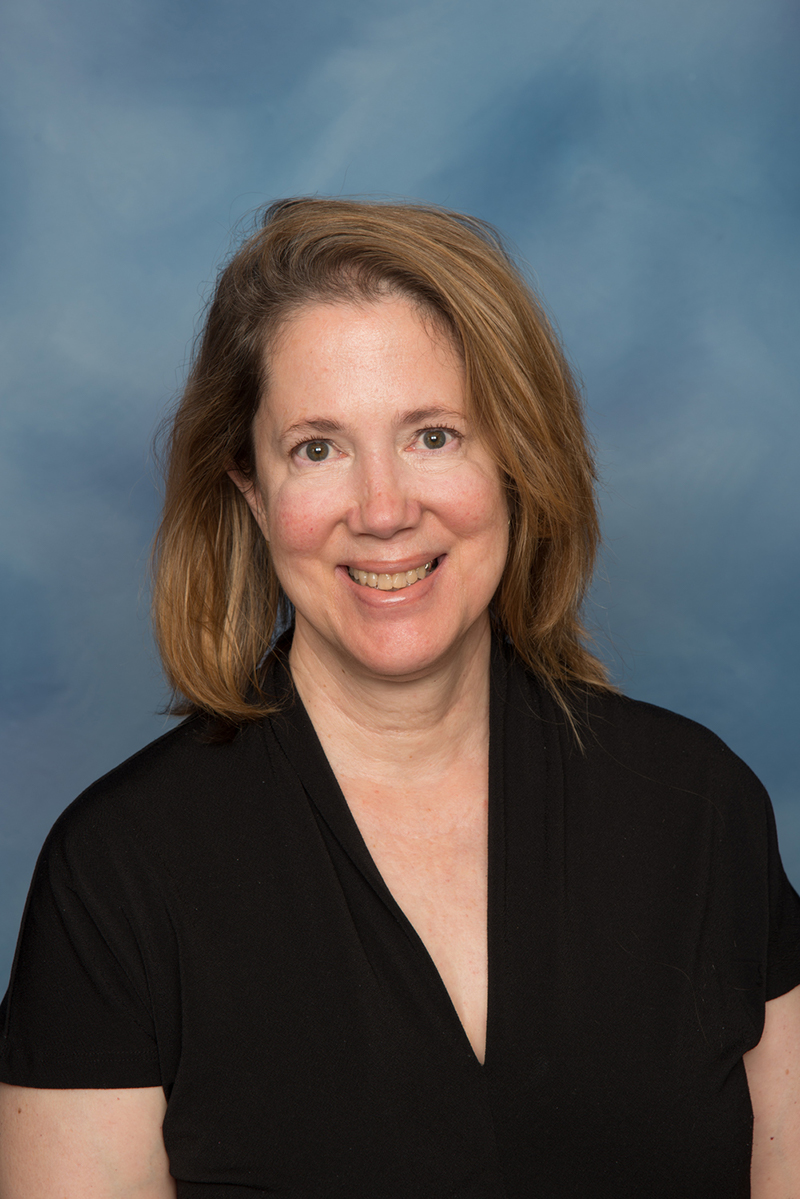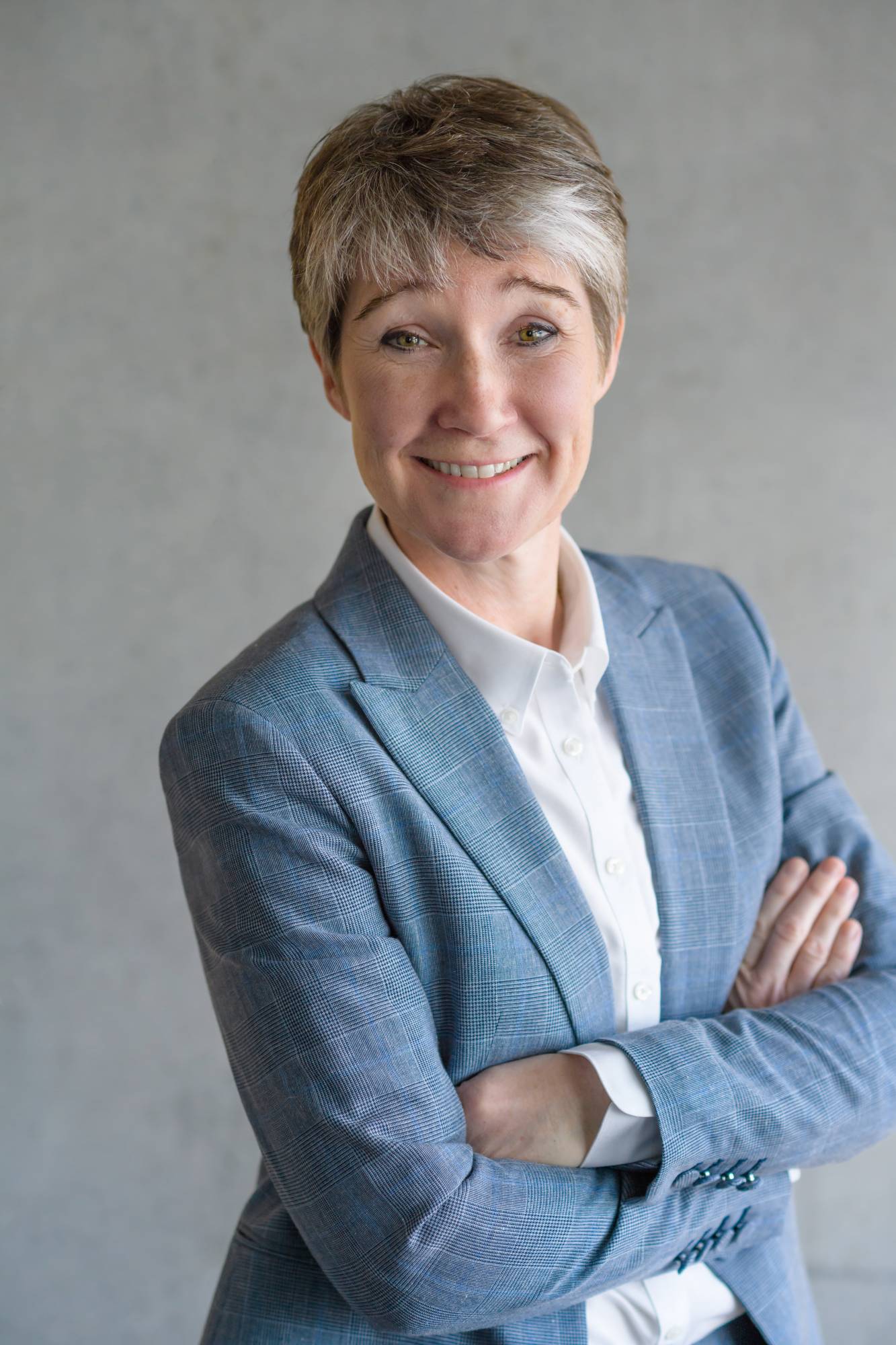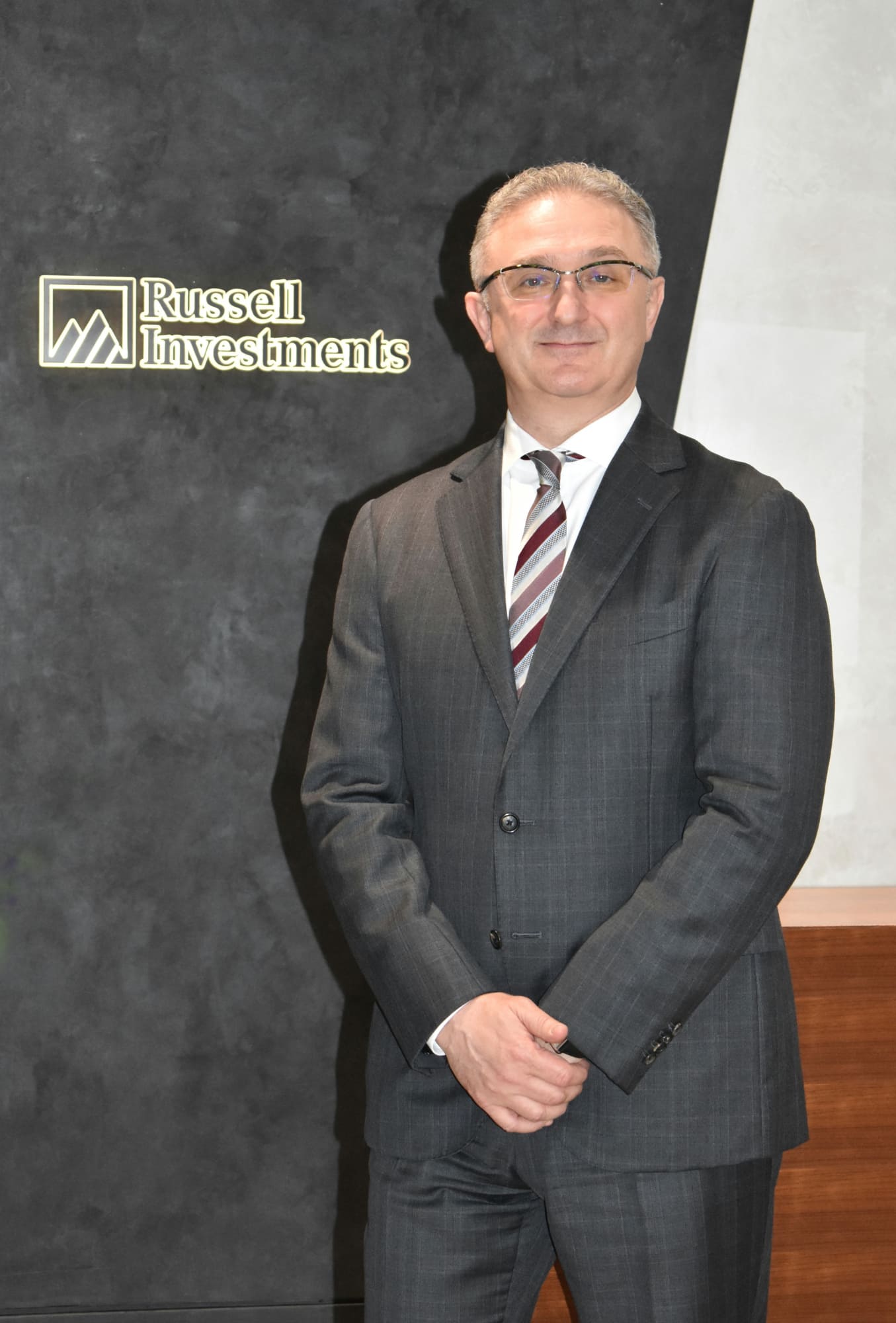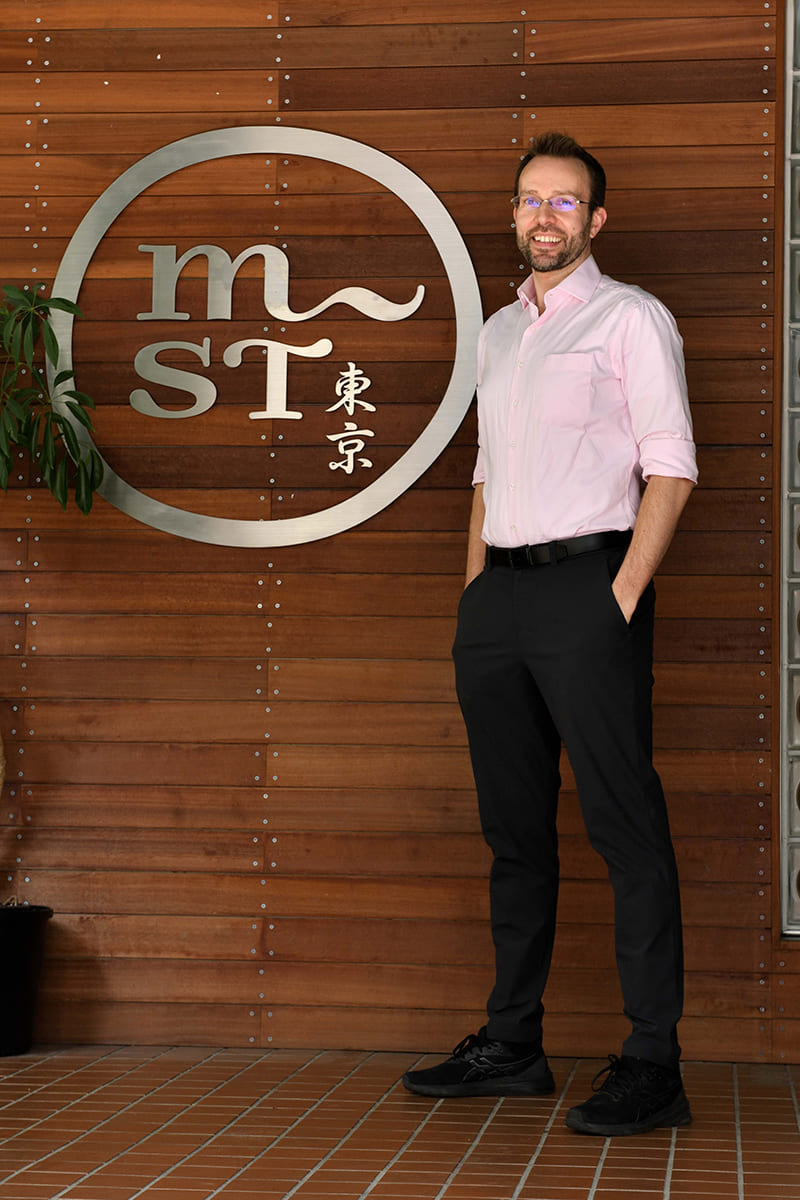
March 31, 2025
Montessori head educates Tokyo’s children for life
Briton James Moore’s next goal is method’s first high school in Japan
- Name: James Moore
- Title: Head of School, The Montessori School of Tokyo
- URL: https://www.montessorijapan.com/
- Hometown: Ravenshead, England
- Years in Japan: 24
The Montessori education method, pioneered by Italian educator Dr. Maria Montessori (1870-1952), is now recognized worldwide. At its heart, Montessori is a child-centered approach, rooted in developmental science and emphasizing hands-on, self-directed learning. Rather than following teacher-led instruction, children explore at their own pace, guided by their own sense of curiosity.
While many people are familiar with the Montessori method, it is often seen as primarily for younger children. Indeed, a range of Montessori-based preschools and kindergartens can be found throughout Japan, with programs in English, Japanese or both languages. Yet the Montessori approach can continue to grow with children, keeping pace with every step of their education.
The Montessori School of Tokyo (MST) is a case in point. Located in Minamiazabu, the international school caters to children from ages 18 months up to 15, with plans to develop Japan’s first Montessori high school in the near future. Head of School James Moore shared with us his thoughts on education, along with his Japanese journey and how he discovered his life’s work here.
Taking a chance on Japan
Moore grew up in the U.K. with a passion for the performing arts. “I was deeply involved in theater and music throughout school and university, taking on lead roles in musicals and serving as president of the stage musical society. I even fronted the Leeds University Dance Band as a vocalist,” he said. “However, I assumed I could always pursue music and theater as a hobby while focusing on a more traditionally ‘stable’ academic degree.”
After majoring in mathematics and computer science at university, Moore was considering a postgraduate job managing student societies at his alma mater. Then, as is often the case, a spur-of-the-moment decision took him down an entirely different path. A friend had just applied to the government-run Japan Exchange and Teaching Programme (JET), which sounded like an exciting opportunity. With just a week until the deadline, Moore moved swiftly to get in his application for JET and, together with his buddy, subsequently found himself in Mie.
“My friend actually chose Mie Prefecture for both of us, simply based on its central location in Japan. I knew nothing about it at the time, but it turned out to be a fantastic place! I ended up staying for three years, loving the work, the people and the lifestyle,” he recalled fondly.
Eager to stay in Japan after three years on JET, Moore applied to MST primarily to extend his stay in Japan and experience Tokyo while considering his next career move. However, something “clicked” for the young Brit once he arrived at the school. “There was something different, something special about the Montessori approach,” he explained. “Over time, it resonated deeply with me, and within a couple of years, I realized this wasn’t just another job — this was a philosophy I believed in. It became my career.”
Fostering a love of learning
According to Moore, MST’s goal for students isn’t just academic success; it’s about nurturing confident, independent and self-motivated learners. Rather than memorizing facts for tests, as in conventional education systems, Montessori students develop lifelong skills and a deep love of learning.
“Our classrooms are calm, structured environments filled with specialized materials that encourage problem-solving and independence. Teachers, or ‘guides,’ observe and support rather than dictate,” Moore said. “The mixed-age classrooms — for example, ages 3 to 6, 6 to 9, and so on — foster mentorship, collaboration and leadership skills. Older students become role models, reinforcing their own learning by teaching younger ones.”
Though MST is an English-centered learning environment, it also integrates elements of Japanese culture. There are native-speaking staff and Japanese-specific materials in the classrooms to support language development, while further chances for cultural exposure come through celebrating Japanese festivals and events throughout the year.
That said, Moore pointed out that the Montessori approach is universal and children are the same everywhere: “They need to feel capable, valued and respected, and to have opportunities to develop independence, emotional intelligence and social skills.”

Building a community
Having been part of MST for over two decades, Moore has witnessed firsthand the powerful impact of this environment on students, families and staff alike. He sees his multifaceted role as head of school as revolving around community-building, from overseeing admissions — ensuring that families understand and align with the school’s values — to hiring passionate educators who share the institution’s philosophy.
MST is also part of his own family’s journey. Moore and his wife, an Australian, are parents to 11-year-old twin boys who have attended MST since they were toddlers. “Knowing that they’re experiencing an education I truly believe in is incredibly meaningful,” he said.
The goal of establishing Japan’s first Montessori high school is now on the horizon. “I became the head of school in summer 2020, taking on the role just as COVID started. Now that we’ve reached a time of stability again, I’m looking forward to guiding the school through the next phase of development,” Moore said.
Outside of his role at MST, Moore stays active with a range of interests. He performs around Tokyo on a regular basis with his band, Water Shed, covering songs by acts such as Ed Sheeran, Van Morrison, Maroon 5 and Mumford & Sons. He is also a follower of soccer and baseball, and enjoys snow sports with his family. “I’m a big fan of board games, too. Whether it’s playing Settlers of Catan with my family or strategy games with friends, I love the social and strategic elements of a good game night!” he said.

